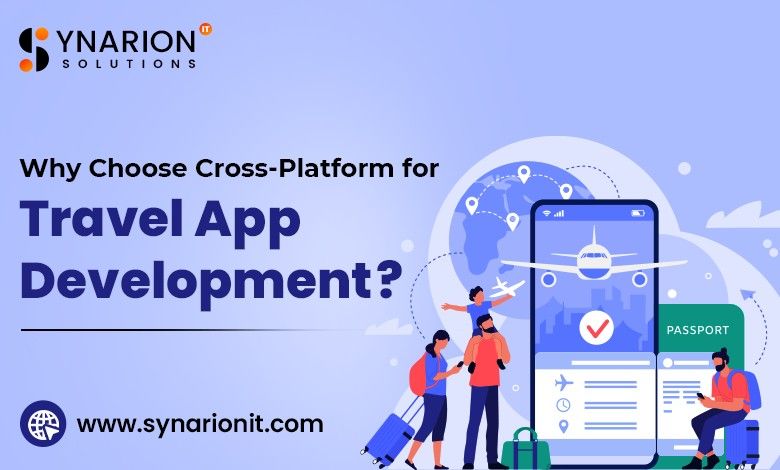


Choosing cross-platform for travel app development offers cost efficiency, faster time-to-market, consistency across devices, easier maintenance.
In the rapidly evolving world of mobile applications, businesses must keep up with the demand for user-friendly, feature-rich, and reliable solutions. The travel industry, in particular, has seen a surge in demand for mobile apps as travelers seek convenience, flexibility, and a seamless user experience. A travel app development strategy can significantly impact your business’s success, and one important decision developers face is whether to go with native app development or adopt a cross-platform approach.
Cross-platform app development refers to the process of creating an application that can run on multiple platforms—most commonly iOS and Android—using a single codebase. Unlike native apps, which are built separately for each platform, cross-platform apps enable developers to write the code once and deploy it across different operating systems. Frameworks such as Flutter, React Native, Xamarin, and Ionic have gained popularity because they allow developers to create apps that work seamlessly on both Android and iOS.
One of the primary reasons businesses opt for cross-platform app development is the cost savings it offers. Developing a native app for both iOS and Android requires two separate development teams and two codebases, leading to higher costs for design, coding, testing, and maintenance. With cross-platform development, businesses can use a single codebase, which reduces the need for multiple development teams and minimizes overhead costs.
In a competitive industry like travel, being able to launch your app quickly can make a significant difference. Cross-platform travel app development allows developers to create apps faster by writing a single codebase that works on multiple platforms. This significantly shortens the development lifecycle, enabling your app to be launched in a fraction of the time it would take to develop two separate native apps.
Cross-platform travel apps offer greater consistency in terms of both design and functionality. With a single codebase, developers can ensure that the app’s appearance and features are uniform across iOS and Android devices, providing a seamless experience for users regardless of the platform they are using. This consistency is vital in the travel industry, where customers expect a high level of service and usability across devices.
Maintaining and updating a travel app is crucial to keeping it relevant and bug-free. Native apps often require separate maintenance for iOS and Android versions, which can be time-consuming and costly. With a cross-platform app, developers can implement changes, fix bugs, and release updates simultaneously across both platforms using the same codebase.
By developing a cross-platform app, you can immediately reach a larger audience. Instead of focusing on one platform, such as just Android or iOS, you can engage users across both ecosystems, giving your app access to millions of potential customers. This broader reach is particularly important in the travel industry, where diverse user groups across different countries and regions use different devices.
Cross-platform app development has come a long way in terms of performance. Modern frameworks like Flutter and React Native allow developers to create apps that perform nearly as well as native apps. These platforms enable apps to access native device features (such as GPS, camera, and notifications) and optimize performance for smoother and faster user experiences.
As technology continues to evolve, cross-platform development ensures that your app can be adapted to new platforms with minimal effort. For instance, if a new device or operating system version is introduced, you can easily make adjustments to your app without the need for a complete rebuild. This future-proofing approach is essential for businesses looking to maintain a long-term, sustainable app presence in the competitive travel market.
In the competitive world of travel app development, choosing the right approach can make all the difference. Cross-platform app development offers significant advantages, from cost savings and faster time-to-market to ease of maintenance and access to a wider audience. For travel companies looking to create seamless, high-performance apps that provide a consistent user experience, the cross-platform approach is a highly effective solution.
By leveraging the power of cross-platform travel app development, businesses can deliver robust apps that meet the needs of today’s tech-savvy travelers while staying agile enough to adapt to future industry demands.
